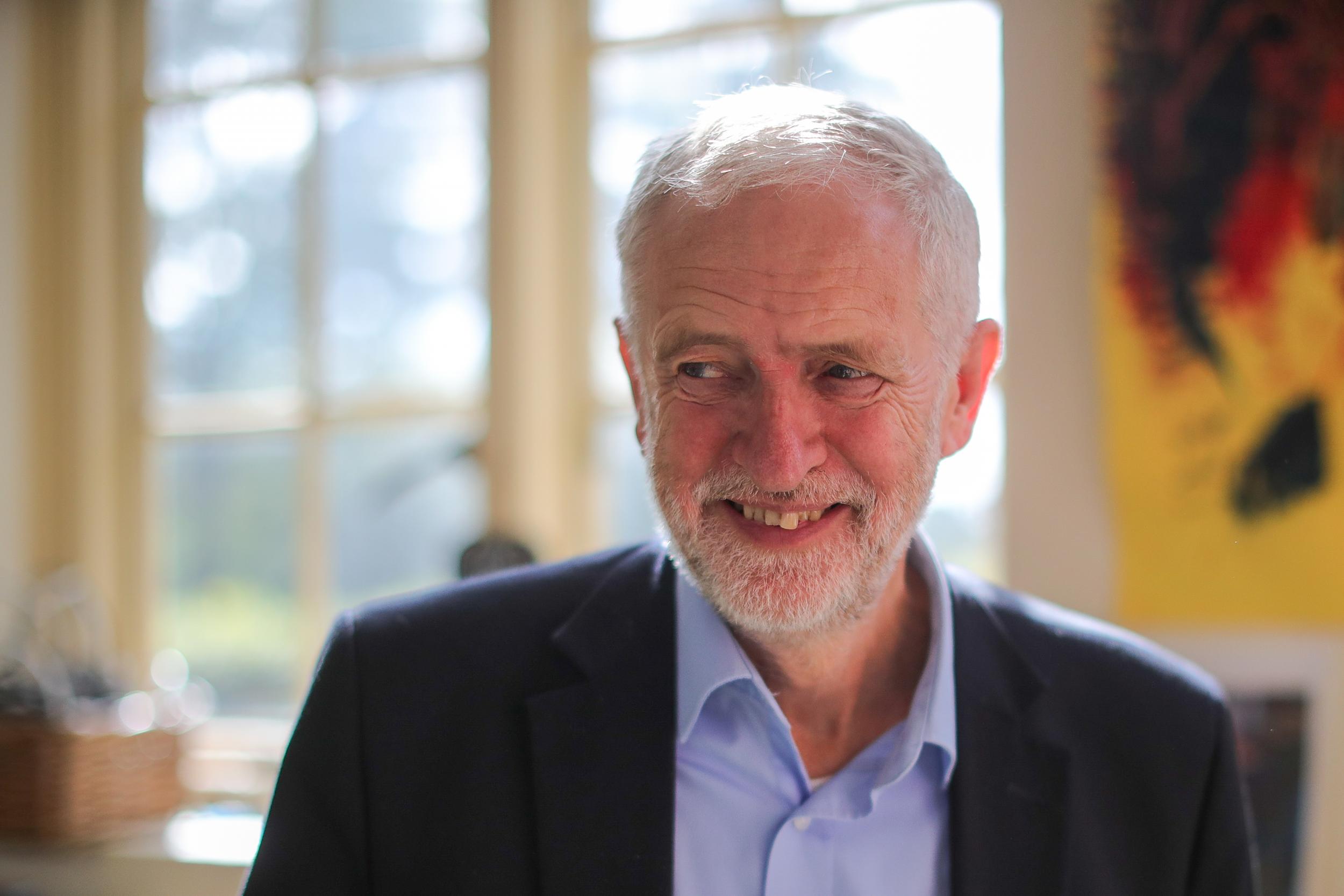Voters overwhelmingly support Jeremy Corbyn's policy agenda, poll finds
But the survey also showed many voters are yet to see Labour as a government in waiting

The British public has given overwhelming backing to major parts of Jeremy Corbyn’s policy agenda, new polling has revealed.
The exclusive survey for The Independent shows the Labour leader’s plan to cap the excessive pay of “fat cat” executives is among the most popular proposals – winning backing from 69 per cent of people.
But the study by BMG Research also indicates Labour still has work to do, with a larger proportion of people yet to believe the party is a “government in waiting”.
Many voters also do not think Mr Corbyn’s relative success at the ballot box has earned him the right to change Labour’s internal rules on leadership contests and candidate selection.
It comes just days before Mr Corbyn is to attend his third party conference as leader but in his strongest position yet, having performed better than expected at the election in June and ended talk of a leadership challenge.
Today’s poll tested key ideas in the party’s manifesto or mooted by Labour figures, including a ratio cap on executive pay, scrapping tuition fees, nationalising rail and utility companies and imposing a financial transaction tax.
Asked whether people would back “a pay ratio for top executives, so pay is capped relative to the pay received by the lowest-paid worker in the company”, 38 per cent said they “strongly” backed the plan and 31 per cent supported it “somewhat”.
It is one of several areas where a strong Labour position has helped push the Government into making concessions, with Ms May announcing measures to tackle excessive corporate pay earlier this year – albeit ones that fell short of what had initially been mooted.
Plans to force companies to put a worker on boards giving them a greater say on executive pay rewards were ditched by the Prime Minister in the face of opposition from some cabinet ministers.
Mr Corbyn’s call to scrap tuition fees altogether is also backed to some degree by a majority, 58 per cent. Sensing shifting public mood on the issue, ministers including Chancellor Philip Hammond have said the current system of fees needs reviewing.
Nationalising the railways also received majority support, with 55 per cent of the public saying they backed it either “strongly” or “somewhat”, while nationalising utilities “such as water and electricity” won the approval of 57 per cent in the weighted poll.
There was also broad support for a “Robin Hood tax”, of around 0.05 per cent on financial transactions “including those involving stocks, bonds, foreign currency and derivatives” – an idea Shadow Chancellor John McDonnell has previously signalled support for – which was backed to varying degrees by 45 per cent in the poll.
But the popularity of Labour’s manifesto commitments will be tempered by an apparent nervousness about the party taking up the reins of power.
Asked “do you see the Labour Party as a government in waiting”, 44 per cent of people said no, while 33 per cent of people said they did and 24 per cent said they did not know.

There were also questions over what Mr Corbyn’s success at the ballot box, which saw him defy predictions to increase Labour’s number of Commons seats, earned him the right to do.
Some 46 per cent said the result earned him the right to fight the next election, compared with 31 per cent who said it had not and 23 per cent who did not know.
There was an almost even split on whether the outcome earned him the right to “personally” set his party’s policy agenda, with 35 per cent saying it did, 37 per cent saying it did not and 29 per cent saying they did not know.
But when it came to whether Mr Corbyn had earned the right to start changing the internal workings of his party, support drifted.
Asked whether the election meant he should be able to change leadership contest rules – set to be a key battleground for rival wings at this year’s conference – only 24 per cent said it did, whereas 44 per cent said it did not and 32 per cent did not know.
On changing the way MP candidates are selected, just 23 per cent thought Mr Corbyn’s election result earned him the right to alter rules, 45 per cent said it did not and 32 per cent said they did not know.
The leadership is expected to propose reform of party rules at a meeting of Labour’s ruling National Executive Committee on Tuesday, though insiders have said not to expect anything “dramatic”.
There are also due to be a series of pitched battles on the conference floor in Brighton over changes to the leadership contest format and on who sits on the NEC.
1,447 individuals were surveyed 12-15 September. Results are weighted to reflect the profile of GB adults
Join our commenting forum
Join thought-provoking conversations, follow other Independent readers and see their replies
Comments
Bookmark popover
Removed from bookmarks